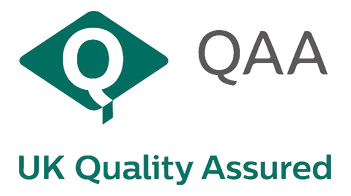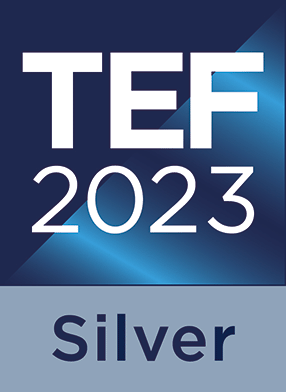Modules may include:
Year 1 (Level 4)
STEM Toolkit (20 credits)
The purpose of this module is to enable you to acquire and develop a range of skills including transferable, personal, interpersonal, numerical, academic and subject-specific skills that will enable you to succeed in science.
Biomolecules and cells (20 credits)
This contains the knowledge and understanding of the major biomolecules and structures which occur inside all cells. You will explore cells and cellular organelles, examining in detail how these work as entities as well as how they work together for whole cell function.
Integrated Practical Skills (20 credits)
This module covers a broad range of fundamental techniques in chemistry and biology. You will learn practical skills that are fundamental to working in any commercial or academic laboratory.
Data Analysis (20 credits)
The aim of the Data Analysis module is to develop knowledge of statistical techniques and procedures to support academic learning in scientific subjects.
Optional Modules
Anatomy and Physiology (option) (20 credits)
This module explores the structure and function of the human body and its systems. Through studying this module, you will explore how your body is changed by disease processes. This would appeal to those who are seeking employment in the biomedical sector.
OR
Physical and Inorganic Chemistry (option) (20 credits)
This module covers a range of fundamental concepts in chemistry and provides an introduction to topics that will be important if you intend to progress on to careers in which a significant knowledge of chemistry is required. The module will introduce key ideas and theories as well as give you the opportunity to further develop important practical skills.
AND
Biochemistry (option) (20 credits)
This module aims to deliver knowledge and understanding of the major biochemical processes which occur inside all cells. You will explore complex biochemical pathways and explore how they work and contribute to cellular function.
OR
Organic Chemistry (option) (20 credits)
This module will explore the chemistry of, and methods of identifying, common organic compounds as well as give you the opportunity to experience some synthetic and analytical practical activities.
Year 2 (Level 5)
Pharmacology and Therapeutics (20 credits)
This module covers the pharmacology of the major body systems in addition to offering a perspective on the therapeutic interventions in modern medicine. The module also offers the chance to develop a detailed understanding of the regulation of the modern pharmaceutical industry and to follow the pathway of drug discovery through clinical trials to the marketplace. The module will ensure you have the necessary knowledge, skills and understanding to enter careers in medical science, pharma or related industries.
Work-Related Learning (20 credits)
This module covers a broad range of concepts relating to the modern workplace. You will explore the traits required in a good employee and develop their understanding of the sector and marketplace for careers in modern industries. The module will introduce key ideas as well as practical experience crucial to those wishing (broadly) to enter the pharmaceutical and biotechnology industries. Achievement of the module requires a minimum of 20h documented work experience. In addition to the taught elements, students will complete a series of laboratory-based technical competencies such as the use of the autoclave and sterile technique amongst others. These skills are mapped across the level 5 modules.
Scientific Investigation (20 credits)
This module develops the understanding of the processes fundamental to all science using current knowledge to advance your learning of how the science industry operates. You will have the opportunity to plan and practically investigate a topic of your choice, using the practical skills gained during the first year of the degree and also acquiring new laboratory skills. At the end of this module, you will be able to confidently use industry-standard laboratory equipment such as UV-Vis spectrophotometers, rotary evaporators, autoclaves, micropipettes, electrophoresis rigs, centrifuges and chromatography columns.
Optional Modules
Analytical Chemistry (option) (20 credits)
In this module you will learn about standard techniques for investigating the identity and quantity of chemicals present in mixtures. You will get to use a range of equipment such as spectrometers, photometers and chromatograms to perform procedures that are common in analytical labs such as food testing, environmental monitoring or forensics services, as well as quality control departments in industries such as pharmaceutical companies.
OR
Microbiology and Biotechnology (option) (20 credits)
This module develops the core knowledge about microorganisms and their increasingly important role in industrial processes across a range of applications including the pharmaceutical and biotechnology sectors.
Understanding and hands-on experience in managing microbial growth and manipulation in these critical sectors presents a valuable skill for employment in today's industries where an ever-rising number of products and processes are dependent on biotechnology.
Immunology (option) (20 credits)
This module aims to develop your knowledge of how the immune system works in addition to demonstrating the importance of immunoassays and specific reagents in science and medicine. You will develop knowledge of non-specific and specific works immunity, how function changes in disease states and how this knowledge is used and applied practically. This will provide a background for anyone progressing into any field within the modern Biotechnology, Bioscience and Biomedical Science industries.
OR
Medicinal Chemistry (option) (20 credits)
This module explores the ways in which drug molecules cause their effects in the human body. It will allow you to study how medicinal chemists design new drugs or alter existing ones to improve their properties. This will include the use of computer software to make predictions about molecular properties based on their structures. You will also get the chance to learn to synthesise some medicinal compounds in our laboratories.
Genetics (option) (20 credits)
This module develops the knowledge and understanding needed to analyse and evaluate the inheritance of physical properties passed between generations as well as gives insight into genes that affect biological processes in human and bacterial cells.
OR
Biomaterials (option) (20 credits)
In this module you will learn about the materials that are used in medical implants such as replacement knee or hip joints, pins to help bone fractures heal or rods that are used to correct spinal problems. You will explore a range of different materials and practice using data about them (found by querying standard material property databases) to make decisions about which materials are most suitable for which medical applications.
You will choose options for semester 1 at enrolment. Semester 2 options must be chosen by the Christmas break
Options will only be offered if there is sufficient interest in them










